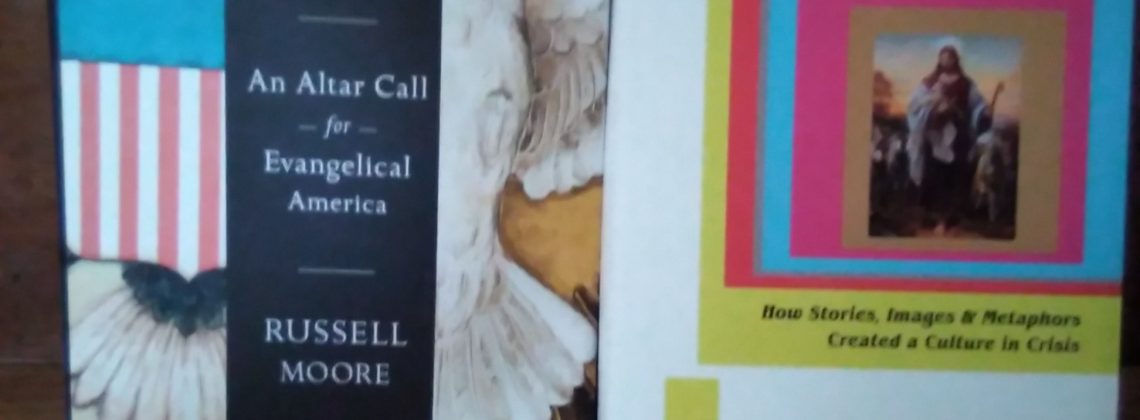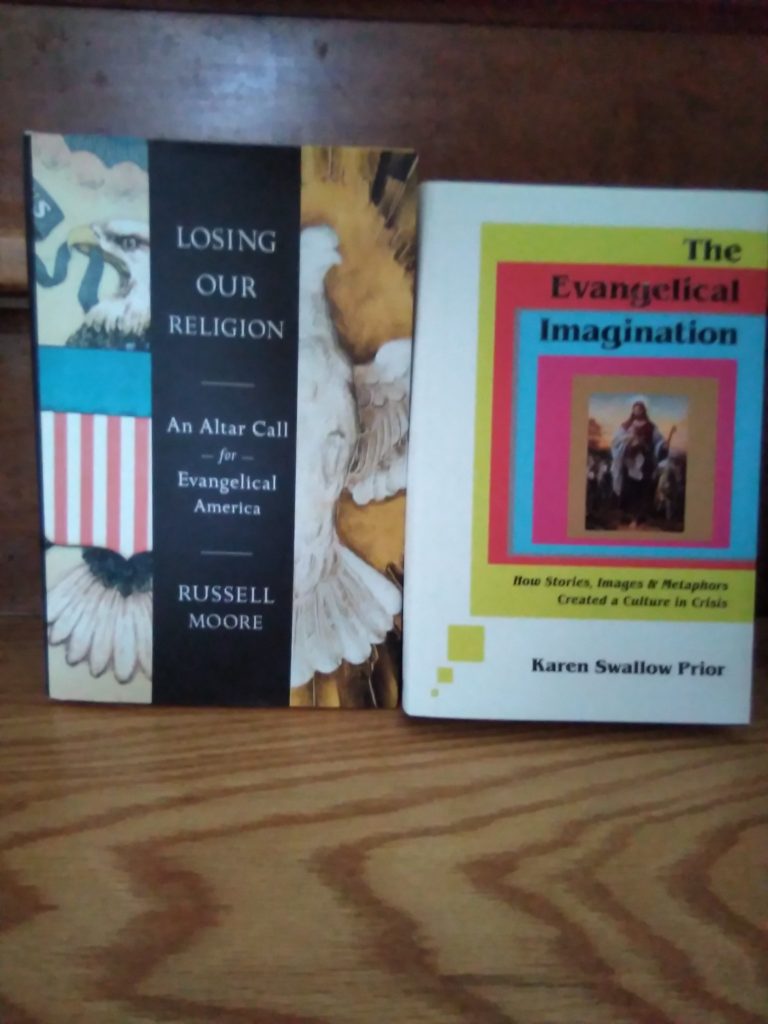

Earlier this week, Christian Scholar’s Review ran Daniel K. Williams’ combined review of two books: Russell Moore’s Losing Our Religion (which Nadya Williams previously reviewed at The Arena) and Karen Swallow Prior’s The Evangelical Imagination (which Christina Bieber Lake had previously reviewed for Current). A taste from this review, which you can read in full here:
Russell Moore and Karen Swallow Prior may not fit the stereotype of an “exvangelical.” Unlike the angry twenty-something who takes to social media to announce that they’re resigning from church, Moore and Prior both devoted several decades of their adult lives to serving the church through teaching, writing, and (in Moore’s case) denominational administration. Both were deeply entrenched in Southern Baptist institutions—Moore as a dean at The Southern Baptist Theological Seminary and then as president of the Southern Baptist Convention (SBC)’s Ethics and Religious Liberty Commission, and Prior as a professor at Southeastern Baptist Theological Seminary, after teaching for years at Liberty University.
But they have recently left those positions and, though they haven’t left church, they’re nevertheless transitioning away from something. What exactly they’re leaving and what they’re transitioning into is the subject of their most recent books—Moore’s Losing Our Religion and Prior’s The Evangelical Imagination. American evangelicalism, Moore and Prior believe, has lost its way by acquiring a mass of cultural baggage that has less to do with Jesus or the Bible than with its own particular history and interests. A reformation is needed. But in order to know how we should begin this reformation, we need to know where we’ve been. Losing Our Religion and The Evangelical Imagination are thus part history, part lament, and part call to repentance.
…despite all of their similarities, Moore and Prior are also proposing somewhat different paths to reforming American evangelicalism. Moore’s book is, as its subtitle proclaims, an “altar call” to evangelicals—which means that, like any good evangelical preacher (especially a Baptist one), Moore is calling his fellow Christians to repent and believe, and then to receive a new infilling of the Holy Spirit or a new sense of assurance and pardon. If evangelical Christians followed Moore’s advice, they would become more dedicated evangelical Christians, with a new love for others, a new determination to be soulwinners, and a new zeal for the gospel—along with far less desire for political power.
…Prior may be calling for something slightly different [than Moore]. In her view, the problem is not merely that evangelicals are not being true to their movement’s eighteenth-or nineteenth-century principles, but rather that those principles have overemphasized or even distorted some scriptural principles, while neglecting others. While her book says far more about the crisis than about a proposed solution, her vision for a reformation, to the extent one can discern it, seems to include a move away from the individualism of the evangelical movement and especially a rejection of evangelicals’ overemphasis on an instantaneous “born again” conversion that expects individual transformation without the long, hard process of repentance and sanctification. The evangelical church has forgotten this and has been blind to its own sins. It has too often pursued political and cultural power instead of finding its comfort and delight in Jesus. It has exalted its own way of seeing the world without realizing that large numbers of other Christians (such as Black Christians, indigenous Christians, and non- Protestant Christians) have often seen the world in a very different way. Now that white evangelicalism is losing some of its political power and influence, many white evangelicals are feeling a sense of loss. But perhaps this moment should instead be a moment for repentance and reformation. “Reforming must also be an ongoing process, not only for each individual believer through the process of sanctification, but for the church itself” (235). The end result, Prior suggests, might be a church that thinks less like white American Baptists and more like the majority of the world’s Christians over the past 2,000 years—that is, Christians who may have never heard about altar calls, the rapture, or the Republican Party, but who delighted in Jesus and wanted to follow him through the practice of repentance and obedience.